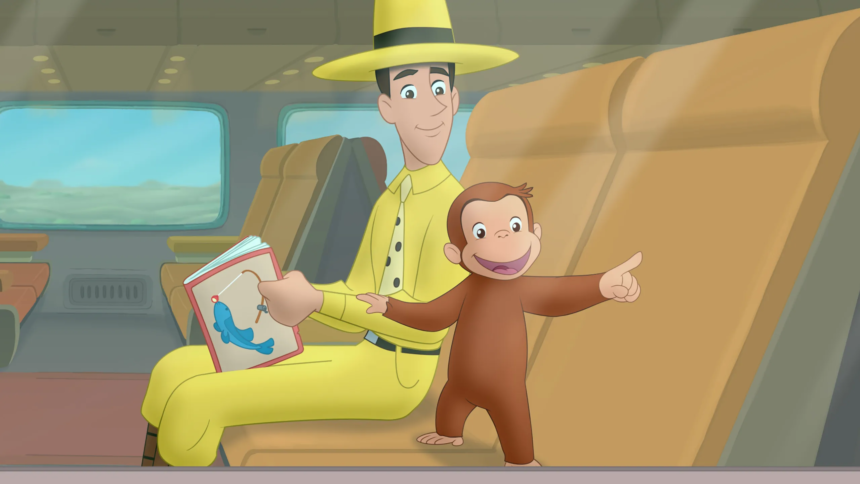Introduction: Unraveling a Childhood Mystery
Curious George, the mischievous and beloved little monkey created by H.A. and Margret Rey, has been a prominent figure in children’s literature since his first appearance in 1941. George has captured the hearts of millions of readers worldwide because of his inquisitive nature and endless antics. Despite the light-hearted surface of these stories, a deeper narrative thread exists involving George’s end, a topic often speculated upon by older fans and scholars of children’s literature. This article explores the theoretical demise of Curious George, analyzing it through the lenses of literary theory, cultural impact, and the symbolic implications behind such a conclusion.

George’s Journey: From Escape to Exploration
Curious George’s adventures begin with his capture in the African jungle by the Man with the Yellow Hat, who brings him to the big city to live a new life. Throughout the series, George engages in numerous escapades, from accidentally floating away with a bunch of balloons to getting a job in a movie. Although George’s curiosity often leads him into trouble, he also teaches valuable problem-solving, bravery, and understanding lessons.
The Notion of Death in Children’s Literature
Discussing death in children’s literature is not as taboo as it once was. Many children’s stories historically included dark themes, often masked within fantastical elements. These themes were used to educate young readers about the realities of life, including its eventual end. In the context of Curious George, no discussion about his demise has been directly addressed in the original works; instead, it remains a subject of theoretical exploration. Authors and educators debate the value of confronting children with the realities of death and loss through such beloved characters.
Speculative Endings: What Could Have Happened to George?
Natural Causes
The most straightforward speculation about George’s demise would be natural causes; as a monkey, his lifespan in captivity would range from 20 to 30 years, suggesting that he might have quietly passed away surrounded by friends, including the Man with the Yellow Hat. This scenario, while sad, provides a gentle bridge for children to understand ageing and death.

The Consequences of Curiosity
Another speculative narrative could involve George’s innate curiosity leading to an accidental mishap. This scenario would follow the character’s established traits and previous adventures. For example, exploring a risky place might lead to an unfortunate event. Such an ending would offer a poignant moment to teach about the limits of exploration and the importance of caution.
Heroic End
Alternatively, George could meet his end heroically, perhaps while saving others. This end would underscore themes of bravery and sacrifice, illustrating a profound moral lesson about the importance of helping others, even at a significant personal cost.
Cultural Reactions and Theoretical Impact
The hypothetical demise of How Did Curious George Die would undoubtedly stir significant reactions among audiences. For many, it would symbolize the loss of a childhood icon, potentially marking an end to innocence for some readers. From a cultural perspective, it would serve as a point of discussion on how society deals with death and loss.

Ethical Considerations and Educational Perspectives
Educators and psychologists might consider the appropriateness of introducing such themes to children through a well-loved character. There are arguments supporting the idea that dealing with the death of a fictional character can provide a safe space for children to explore their feelings and questions about death.
Conclusion: The Legacy of Curious George
Curious George’s theoretical demise offers more than a speculative exercise; it probes deeper into our collective consciousness, challenging us to consider how we address complex themes with young audiences. George’s legacy, characterized by curiosity and learning, suggests that even in death, the lessons gleaned from his life and theoretical end could continue to educate and inspire. Whether through teaching about the natural cycle of life, the consequences of actions, or the heroism in sacrifice, Curious George remains a timeless character in children’s literature, his story offering rich ground for enjoyment and profound learning.








